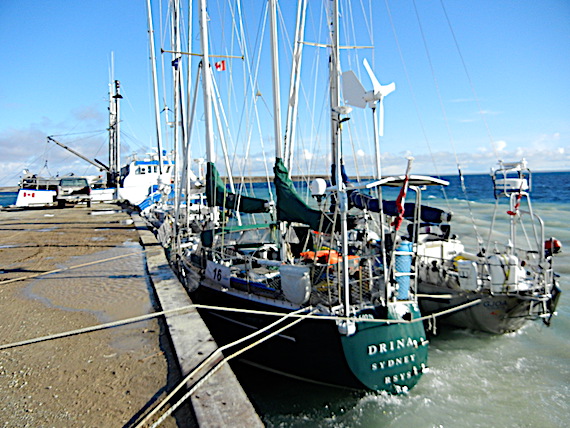Western Nunavut is set to get a new marine surveillance system
The upgrades will test out a system of tracking traffic in parts of the Northwest Passage.

The western Nunavut community of Cambridge Bay is among seven coastal communities in Canada that will test out a new marine information system.
The system, which can track ship traffic and other important maritime information, is part of Transport Canada’s $62.5-million Enhanced Maritime Situational Awareness initiative, part of the federal government’s $1.5 B Oceans Protection Plan.
The new system will provide near-real time data on local ship traffic, the federal government said in a news release last week.
That’s something that many in Cambridge Bay, at the gateway to the Northwest Passage, have cited as a need.
Th system will be one of the largest procurement projects in the Government of Canada’s history, the release said, with Indigenous and coastal communities, Transport Canada and the Canadian Coast Guard working together to award the contract.
Ottawa also plans to make $9.8 million available over two years to develop, test and evaluate the new systems in Cambridge Bay and the other communities selected.
The Oceans Protections Plan, unveiled Nov. 2016 by three federal government departments, targeted the Arctic, among other coastal regions, for big, overdue improvements in safety, especially in increased protection from oil spills and other marine emergencies.
The $175-million marine safety plan, released in 2017 in Cambridge Bay, includes:
• $29.9 million on the new Arctic National Aerial Surveillance Program Complex in Iqaluit.
• $94.3 million over five years to support “safer and more efficient Arctic resupply operations” through more safety equipment and basic marine infrastructure—and the training of local people to operate these.
• $21 million over five years for Transport Canada’s Marine Training Contribution Fund, to support training opportunities forunderrepresented groups, including Indigenous people, northerners and women in Canada’s Arctic.
• $16.89 million over five years to establish Transport Canada’s Office of Incident Management, which will modernize and standardize the department’s incident response processes, with a new incident command system.
• The expansion of the Canadian Coast Guard Auxiliary in the Arctic, which will see eight new vessels provided to volunteer groups to respond to incidents.
As part of the marine safety portion, Transport Canada now funds ocean career training for Inuit.